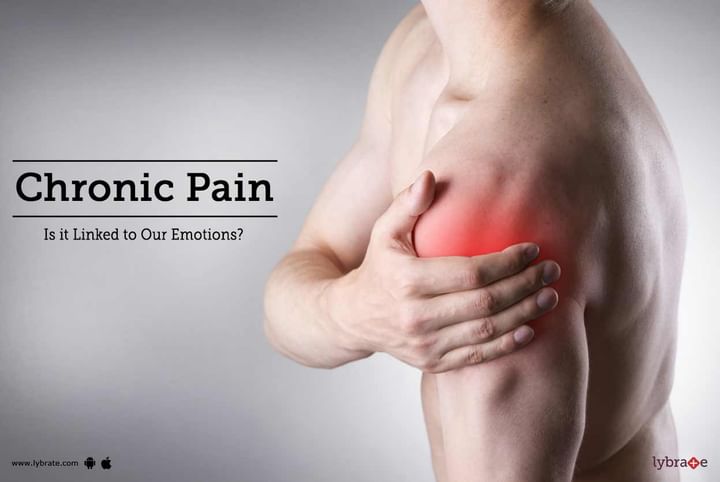Chronic Pain - Is it Linked to Our Emotions?
If you suffer from chronic pain of any kind, it is important for you to know that it is associated and linked with your emotions. Other than your physical activities and personal relationships getting hampered, unwanted feelings like resentment, stress and frustration are also common. These emotions and feelings are capable of making your chronic pain condition more worse.
The Relationship between your mind and body: Your mind and body work together and cannot be separated. Your mind controls all your thoughts and also affects the way in which pain is controlled or perceived by the body. Pain and the fear of pain may lead you to avoid activities. This may reduce your physical strength and cause disruption in the functioning of your body.
Stress: Stress affects your body both physically and emotionally. It may lead to an increase in your blood pressure, breathing rate, heart rate and muscle tension may also occur. These may lead to fatigue, appetite changes and sleep disruption. Stress also causes depression, anxiety, make you dependent on drugs and make you dependent on other people.
Depression: Depression is common among chronic pain patients. Chronic pain can make cases of existing depression much more worse and the existing pain is also worsened. There are chances of developing depression from chronic pain if depression runs in your family or genes.
Symptoms of Depression are as follows:
- Feeling sad, angry, worthless and hopeless frequently
- Lack of energy
- Lack of interest in regular activities
- Difficulty in sleeping
- An increase or decrease in appetite, which may lead to major weight gain or weight loss
- Difficulty with concentration
- Having suicidal thoughts and thoughts about dying or harming oneself
How to Handle your Emotions during Chronic Pain: A common therapy, which people with chronic pain undertake is called Cognitive Behavioural therapy. You should seek the help of a therapist. In this therapy, you will learn about thinking in a positive way instead of drowning in negative thoughts. Your fear of pain will be reduced and you will learn how to strengthen important relationships. You will be able to develop a sense of freedom from chronic pain.
If your chronic pain occurs due to an accident or emotional trauma, you may be assessed for post-traumatic stress disorder (PTSD) by your healthcare provider. Many patients suffering from PTSD cannot deal with their pain until the emotional stress is dealt with. If you feel depressed and cannot control your emotions, you need to consult a doctor. If you wish to discuss any specific problem, you can consult a pain management specialist.



+1.svg)
